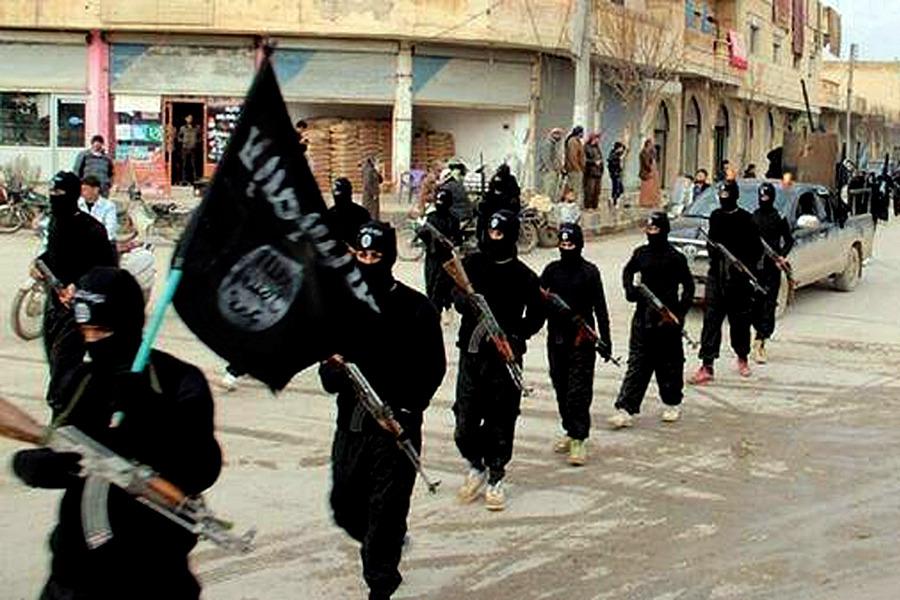Not only is ISIS one of the most rapidly growing terrorist organizations, but it is also a highly profitable business, or, as ISIS calls it: a caliphate. As such, ISIS has a budget, which despite its rudimentary form, can provide insights on how to defeat the organization from a financial perspective. A translation of the budget, which was originally acquired by Western media sources, includes details on how ISIS obtains and spends its money. These revelations, however, might not be the help everyone was expecting.
The budget provides information on Deir az-Zor. Before this oil-rich region fell to ISIS, it provided significant revenue for the Syrian government. Since in the summer of 2014, which is when the terrorist organization took over, the province has continued to serve as a source of revenue for ISIS. Here you can peruse a detailed account by the Financial Times on ISIS’s oil business and includes some cool graphics that show where the area is situated. The FT article also provides a table that I used to calculate that in the summer of 2015 ISIS was making an average of $900,000 a day just from oil just from this province. Which is a lot.
At least those were the estimates. But the budget for the period from December 23, 2014 to January 22, 2015) shows that oil and gas constituted only 27.7 percent of the province’s total revenue. Oil brought in close to $2 million dollars for the entirety of the month, or about $67,000 a day, much less than many estimates. In fact what brought in most money in this oil-rich province were the confiscations (making up 44.7 percent of the total income). The surprisingly low number for oil revenue leads to a couple of conclusions.
Remember the air strikes led by the US and Russia? Well, they must have worked in curbing oil smuggling. Many of the airstrikes’ were aimed exactly at hampering oil-extraction from Deir az-Zor’s oil fields, and the difference between the estimates and the actual numbers proves that for once involvement of the two superpowers in the region has been effective.
The other conclusion is that ISIS has showcased its ingenuity yet again when it comes to raising money. Even though we cannot compare budgets from before and after the airstrikes, I think that ISIS has been compensating for the losses in oil with more confiscations and higher taxes. The Planet Money team of NPR spoke to a Syrian refugee who escaped from Deir az-Zor, and he discussed the various taxes imposed on the population. So in a sense fighting ISIS by bombing its oil fields has hurt those under ISIS rule the most. Hence, “How do we attack ISIS’s financials without causing even further harm to its civilian prisoners?” becomes, literally, the million-dollar question.
ISIS’s expenses do not provide much clarity on how to do that either. 63.8 percent of spending goes to military upkeep, 2.8 percent for Media and Advertising (the Syrian refugee on NPR was asked By ISIS to design the new logo for the ISIS News Agency before he escaped), 5.7 percent for Aid Sums (financial assistance for the poorer parts of the population) and 17.7 percent for their Services Department. The organization mostly spends money on its military and promotion of its message, but provides minimal spending for its citizens. If more countries join the fight against ISIS, then my guess is that it would start spending even more on its military and even less on its citizens. Again, it seems that any course of action hurts the Syrian and Iraqi population most.
I can hardly offer a solution, but I feel that there are some actions the coalition against ISIS can undertake. It can try and stop the influx of jihadi fighters from around the world from joining ISIS by improving security on the Turkish border. It can also try and create an organized and systematic way of helping people leave ISIS-held territories (although with the refugee crises in many countries, not a lot of states would be up for this). Or it can increase the intensity of air strikes and attempt at bombing not the oil fields as much as the ISIS military bases. It will be a hard fight, and ISIS has proven a very strong and resilient opponent, but through analyzing all the information we have, there is a chance of defeating it.




